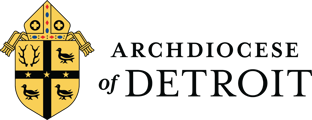A B C D E F G H I J K L M N O P Q R S T U V W X Y Z
B
Beneficiary
Any person named in a will, trust, insurance policy, or other arrangement to receive money or property at the death of the owner or insured. Includes trust and charitable institutions so named.
Bequest
A gift to an individual, the Church or charitable organization named in your will or trust.
C
Cash Value
Internal value of a whole life insurance policy based on net premiums paid and insurance company net investment earnings.
Charitable Lead Trust
An irrevocable trust that distributes income to the Church or charity for a period of years and, when the trust ends, distributes the remaining property to a person or other named beneficiaries.
Charitable Remainder Trust
An irrevocable trust that distributes income to you or other named individual beneficiaries for life or a term of years and, when the trust ends, distributes the remaining property to the Church or charity.
Codicil
A document modifying and becoming an integral part of an existing will.
Contingent or Secondary Beneficiary
Person (or group of persons) named in an insurance policy, retirement plan or other arrangement that will receive the proceeds if the primary beneficiary is not living or in existence at the death of the owner or insured. Includes trusts and charitable institutions so named.
E
Endowment Foundation
Launched in 1993, the Stewards for Tomorrow fundraising campaign established the Archdiocese of Detroit Endowment Foundation. Investment income from the endowment continues to provide important annual financial support for Catholic school students, seminarians, students preparing for lay ministry, retired priests, and others.
Estate
All the property one owns or has interest in, less the liabilities owed.
G
Grantor
The individual who establishes a trust.
I
Intestacy
Having no valid will at death. Property in intestacy is distributed according to state law.
P
Personal Representative
A person named in a will who is responsible for administration of the estate. In some states the personal representative is called an executor.
Primary Beneficiary
The first person or group of persons named in an insurance policy, retirement plan, or other arrangement who will receive the proceeds at the death of the owner or insured. Includes trusts and charitable institutions so named.
R
Residual Beneficiary
A person or group of persons named in an insurance policy, retirement plan, or other arrangement who will receive the remaining proceeds of a policy after the primary and/or secondary beneficiaries receive their share of the proceeds. Includes trusts and charitable institutions so named.
S
Stewardship
Giving, typically through the Church, based on the Christian understanding that all of creation belongs to God and people are merely stewards of all their resources – including time, talent, money, property, etc. – and not owners of them.
Survivorship Whole Life Insurance
Also called Joint Life or Second-to-Die Whole Life Insurance, this insurance has premiums based on two lives and pays benefits upon the death of the second of the two persons.
T
Term Life Insurance
Life insurance coverage for a specific term of years with no cash value accumulation.
Trust
An arrangement giving property to a person to administer and manage for the benefit of beneficiaries according to the terms in a will or trust agreement.
Trustee
The person or persons named in a trust agreement to administer and manage the trust property for the benefit of beneficiaries according to the terms of the trust agreement.
U
Universal Life Insurance
Life insurance with flexible premiums, coverage, and cash value.
W
Whole Life Insurance
Life insurance with fixed premiums and related cash value growth.
Will
The legal and written declaration of your intention for the disposal of your estate after death.
